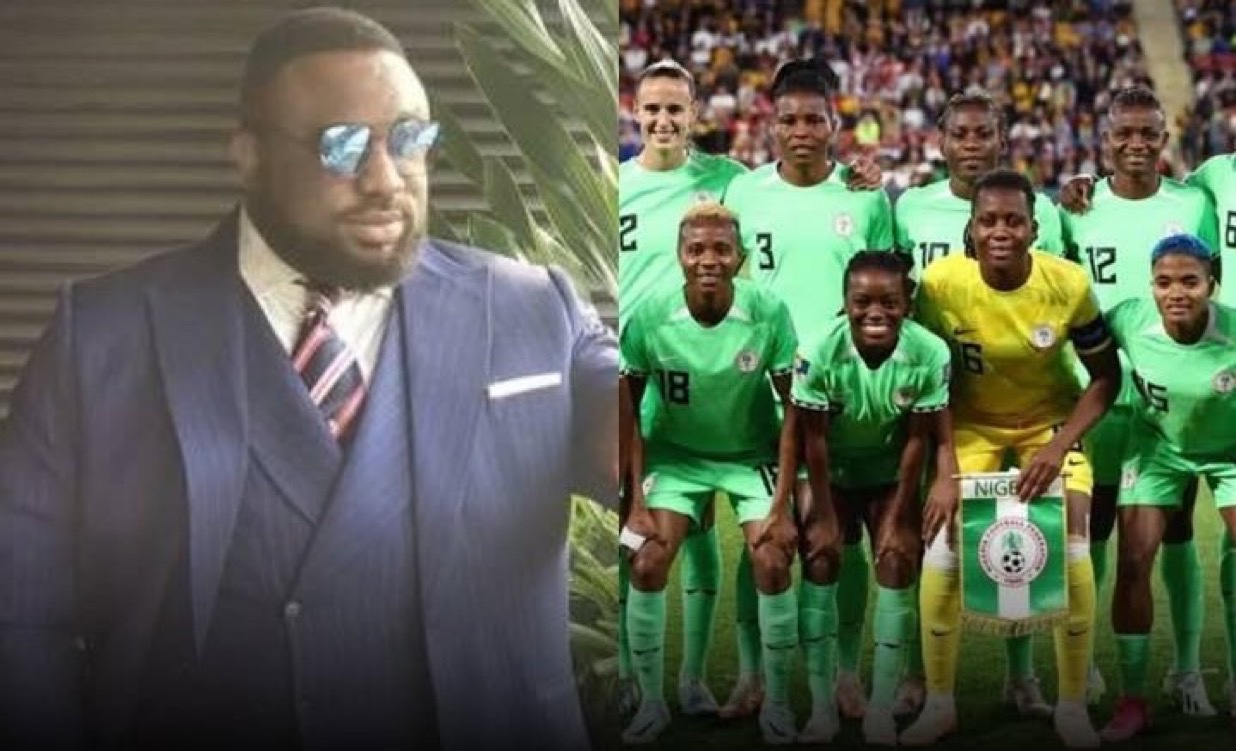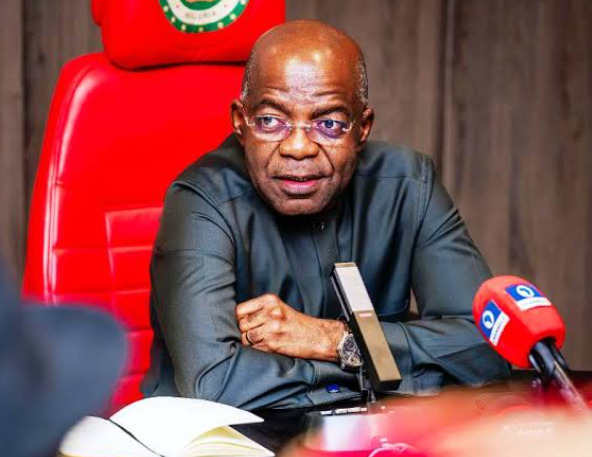
Super Falcons in Fresh Payment Dispute as Analyst Reveals NFF Paid Allowances in Naira Instead of Dollars

A new controversy is brewing in Nigerian football as sports analyst Aron Akerejola has revealed that the Nigeria Football Federation (NFF) paid the Super Falcons their allowances in local currency rather than in dollars, sparking tension between the players and the football body.
According to him, the players, who demanded to be paid in dollars, rejected the naira payment, resulting in yet another delay in settling their dues.
This revelation echoes a long history of payment disputes between the NFF and its national teams, a recurring issue that continues to tarnish the country’s sporting image.
The Super Falcons, Nigeria’s women’s national team, have been no strangers to financial controversies. In 2019, during the FIFA Women’s World Cup, the players staged protests over unpaid allowances and bonuses, with the NFF citing lack of funds as an excuse—a development reported by Vanguard News in 2023 as one of several high-profile financial disputes that have defined the federation’s dealings with its athletes.
The latest incident, if true, underscores a pattern of inconsistent remuneration practices that may have eroded trust between the players and the governing body.
Akerejola’s disclosure gains further weight when examined against broader research on organizational behavior in sports.
A 2021 study published in the Journal of Sports Economics noted that disputes over currency preference are not uncommon in international federations, especially in regions plagued by exchange rate volatility and economic instability.
With Nigeria’s naira suffering sharp depreciation in 2025, the players’ insistence on receiving payment in dollars appears not only logical but also necessary to preserve the actual value of their earnings.
Observers argue that the NFF should have anticipated this demand, especially given that many of the players ply their trade abroad where payments are structured in hard currencies.
Instead, what should have been a routine transaction has spiraled into another saga that puts Nigeria in the global spotlight for the wrong reasons.
Critics point out that such disputes risk dampening player morale and could negatively impact performance, particularly at a time when the Falcons remain Africa’s most successful women’s team with global ambitions.
For many fans, the latest episode feels like déjà vu—a cycle of disputes, promises, and half-hearted resolutions that never seem to end.
With the Falcons continuing to raise Nigeria’s flag high on the international stage, analysts insist that only a sincere restructuring of financial management within the NFF can put an end to this perennial embarrassment.
Until then, the players’ demand for dollar payments may just be the loudest symbol of a deeper, systemic failure in Nigerian football administration.


